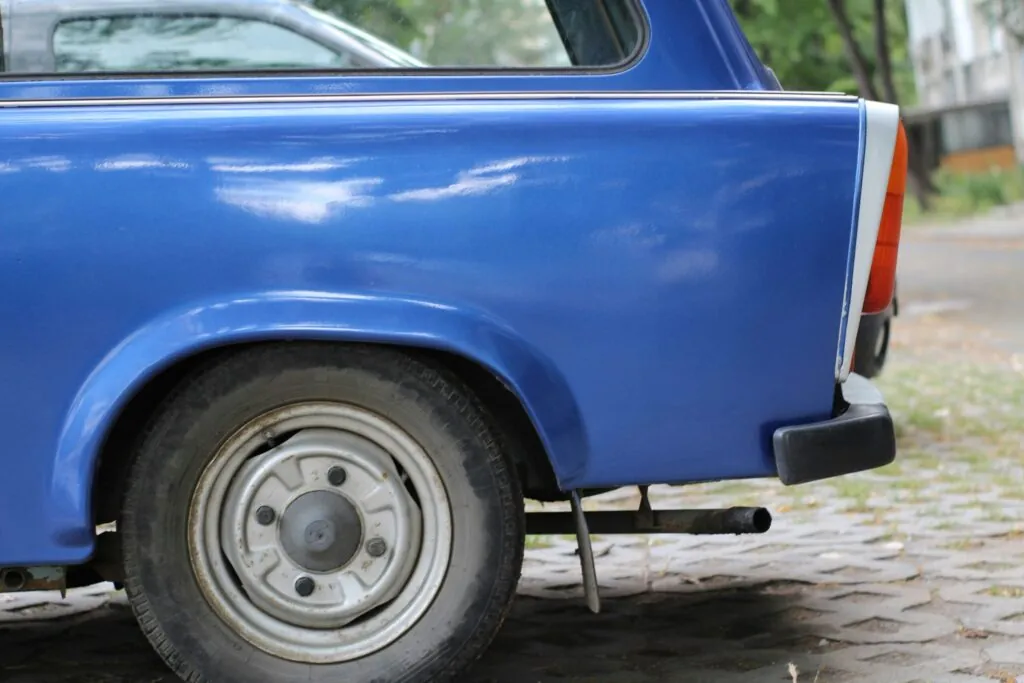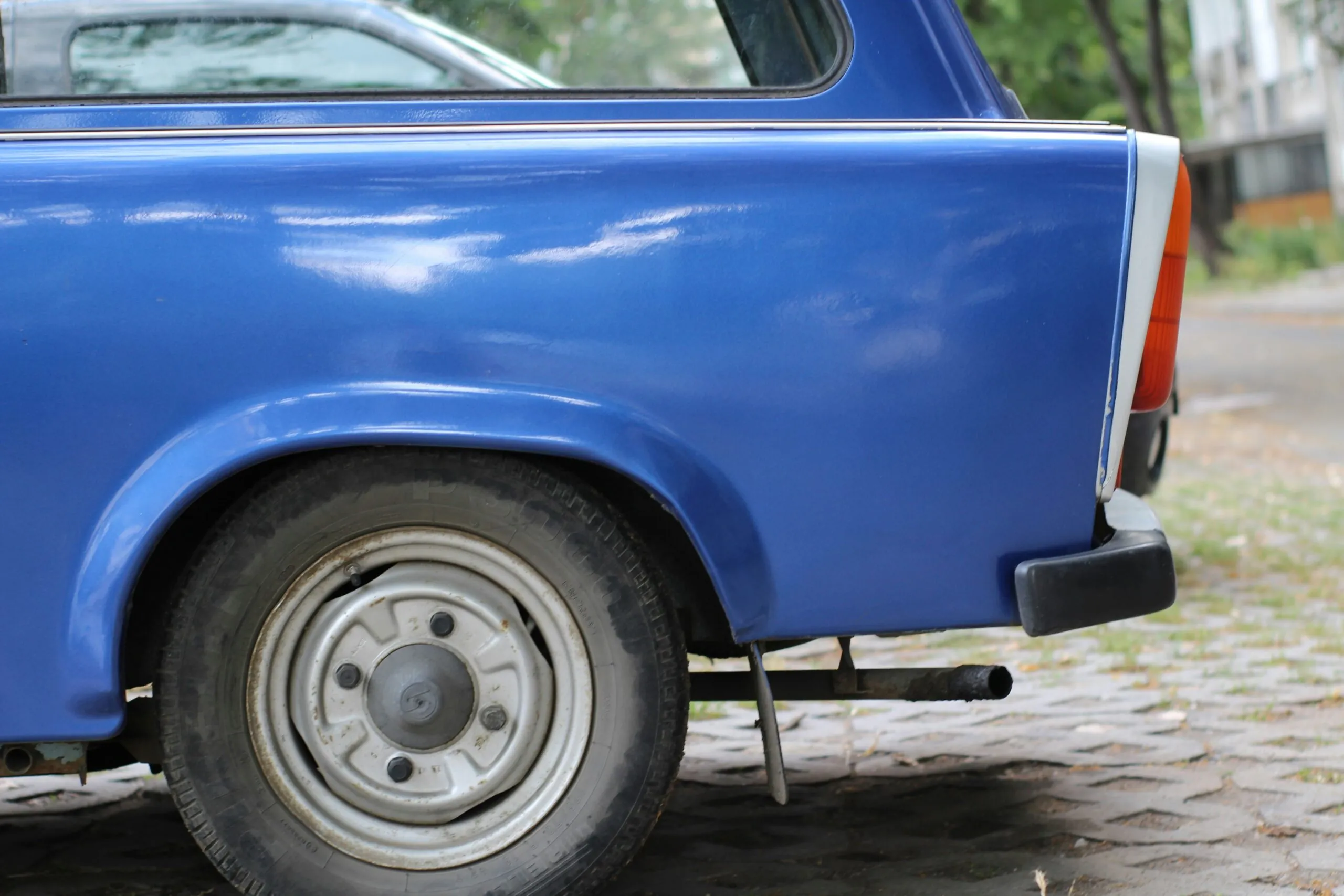Florida Fender Benders: What are your Legal Options?
Florida minor traffic incidents, commonly known as fender benders, are a not-so-uncommon occurrence. While these car accidents are typically less severe than major collisions, the aftermath can still lead to significant questions about legal rights and responsibilities. In Florida, navigating the aftermath of a fender bender involves understanding a unique blend of laws, particularly Florida’s no-fault insurance system, and when it’s possible to pursue legal action beyond this framework.

For many Floridians and visitors alike, a fender bender raises immediate concerns about insurance, damages, and whether suing the other party is a viable option. Given the potential for injuries, financial losses, and disputes over liability, having a clear understanding of your legal options is essential. This is where the expertise of Lawlor, White & Murphey can make a significant difference, guiding you through the complexities of Florida law to ensure your rights are protected.
As we delve into the intricacies of Florida’s approach to traffic accidents, it’s important to recognize that each case is unique. The decision to sue, the process involved, and the potential outcomes can vary widely depending on the specific circumstances of the accident.
What is Florida’s No-Fault Insurance System?
In the labyrinth of legal considerations following a fender bender in Florida, the no-fault insurance system takes center stage. This system, designed to streamline the process of compensating for injuries after a car accident, significantly impacts your ability to sue the other party involved. Understanding this system is crucial for anyone navigating the aftermath of a fender bender.
The Essence of No-Fault Insurance
Florida’s no-fault insurance law mandates that drivers carry Personal Injury Protection (PIP) insurance. This coverage is pivotal because, after most traffic accidents, each party turns to their own PIP insurance to cover medical bills and lost wages, regardless of who was at fault. Specifically, PIP insurance can cover up to 80% of medical expenses and 60% of lost wages, up to a limit of $10,000, under Florida law.
Implications for Suing
The no-fault system aims to reduce the number of lawsuits resulting from car accidents by limiting the ability to sue for minor injuries and damages. Essentially, you can only step outside this no-fault framework and pursue a lawsuit if the accident results in significant and permanent injuries, substantial and permanent scarring or disfigurement, or death. This threshold sets a high bar for litigation, underscoring the system’s intent to keep minor disputes out of the courts.
Exceptions and Considerations
It’s important to note that while PIP covers medical expenses and lost wages, it does not compensate for property damage or pain and suffering. In cases where property damage occurs, such as vehicle repairs after a fender bender, you may file a claim against the at-fault driver’s property damage liability (PDL) insurance. Furthermore, if your injuries meet the threshold for serious injury, you may seek additional compensation through a personal injury lawsuit for damages not covered by PIP, including pain and suffering.
Navigating Florida’s no-fault system can be complex, especially when determining whether your situation qualifies you to file a lawsuit outside of this framework. Factors such as the severity of your injuries, the extent of property damage, and the specific details of your insurance policy all play critical roles in this determination. This complexity underscores the importance of consulting with an experienced personal injury attorney who can guide you through the nuances of Florida law and help protect your rights.
As a firm specializing in personal injury cases, Lawlor, White & Murphey possesses the expertise and experience to advise clients on the best course of action following a fender bender. Whether it’s filing a claim through your PIP insurance, seeking damages for property, or pursuing a lawsuit for serious injuries, our team is dedicated to ensuring that you receive the compensation you deserve.
The Process of Filing a Lawsuit for a Fender Bender in Florida
When injuries from a fender bender are severe, or when there’s significant dispute over damages, stepping outside Florida’s no-fault insurance system and filing a lawsuit may be your best recourse. This legal journey involves several key steps, from the initial consultation with an attorney to the resolution of the case, either through settlement or trial. Understanding this process is vital for anyone considering legal action following a fender bender in Florida.
Initial Legal Consultation
The first step in pursuing a lawsuit is to consult with a personal injury attorney experienced in Florida’s traffic laws and insurance regulations. During this meeting, you’ll discuss the details of your accident, any injuries suffered, and the impact these have had on your life. This consultation is crucial for determining the viability of your case and the best strategy moving forward.
Filing the Lawsuit
If your attorney believes you have a strong case, the next step is to file a legal complaint against the party you believe to be at fault for the accident. This document lays out the basis of your claim, including the circumstances of the accident, the extent of your injuries, and the damages you’re seeking. Filing this complaint officially starts the lawsuit process.
Discovery Phase
After the lawsuit is filed, both sides enter the discovery phase, where each party investigates the other’s claims and defenses. This involves exchanging documents, such as medical records and accident reports, and may include depositions, where witnesses and parties involved are questioned under oath.
Negotiation and Mediation
Many lawsuits are settled before they reach trial. During the negotiation phase, both parties discuss a possible settlement with the help of their attorneys. If negotiations stall, mediation might be employed. This involves a neutral third party who helps both sides reach an agreement.
Trial
If a settlement cannot be reached, the case will go to trial. Both sides will present their evidence and arguments, and a judge or jury will make a final decision regarding liability and damages. Trials can be lengthy and complex, requiring a thorough preparation and understanding of legal procedures.
Finalizing the Case
The conclusion of the trial or settlement agreement marks the end of the legal process. If you win the case, the court will order the defendant to pay the agreed-upon damages. However, it’s important to remember that appeals can prolong the process.
The accompanying image visually represents the journey through Florida’s legal process after a fender bender, highlighting key steps such as consulting an attorney, filing documents, and the courtroom setting. This image, set against the backdrop of iconic Florida imagery, provides a snapshot of what to expect when navigating the legal aftermath of a fender bender.
Contact Lawlor, White & Murphey Today
While minor accidents like fender benders are common on Florida’s busy roads, the impact on your life can be significant. Whether it’s dealing with injuries, negotiating with insurance companies, or seeking compensation for damages, the path forward requires knowledge, preparation, and the right legal support.
Lawlor, White & Murphey specializes in guiding Floridians through this complex legal landscape, offering expertise and support every step of the way. From assessing your case to representing you in negotiations or court, our team is dedicated to ensuring you receive the compensation and justice you deserve.
Remember, every fender bender case is unique, and the decisions you make following an accident can have lasting implications. Consulting with a seasoned personal injury attorney can provide you with a clear understanding of your options and the best strategy for your specific situation.
As you move forward, know that the laws in Florida are designed to protect drivers and ensure fair compensation for those affected by accidents. With the right approach and legal representation, you can navigate the aftermath of a fender bender with confidence, ensuring your rights are protected and your recovery is prioritized. Contact Lawlor, White & Murphey today at 954-525-2345 or book a consultation online to schedule a free, no-obligation consultation
